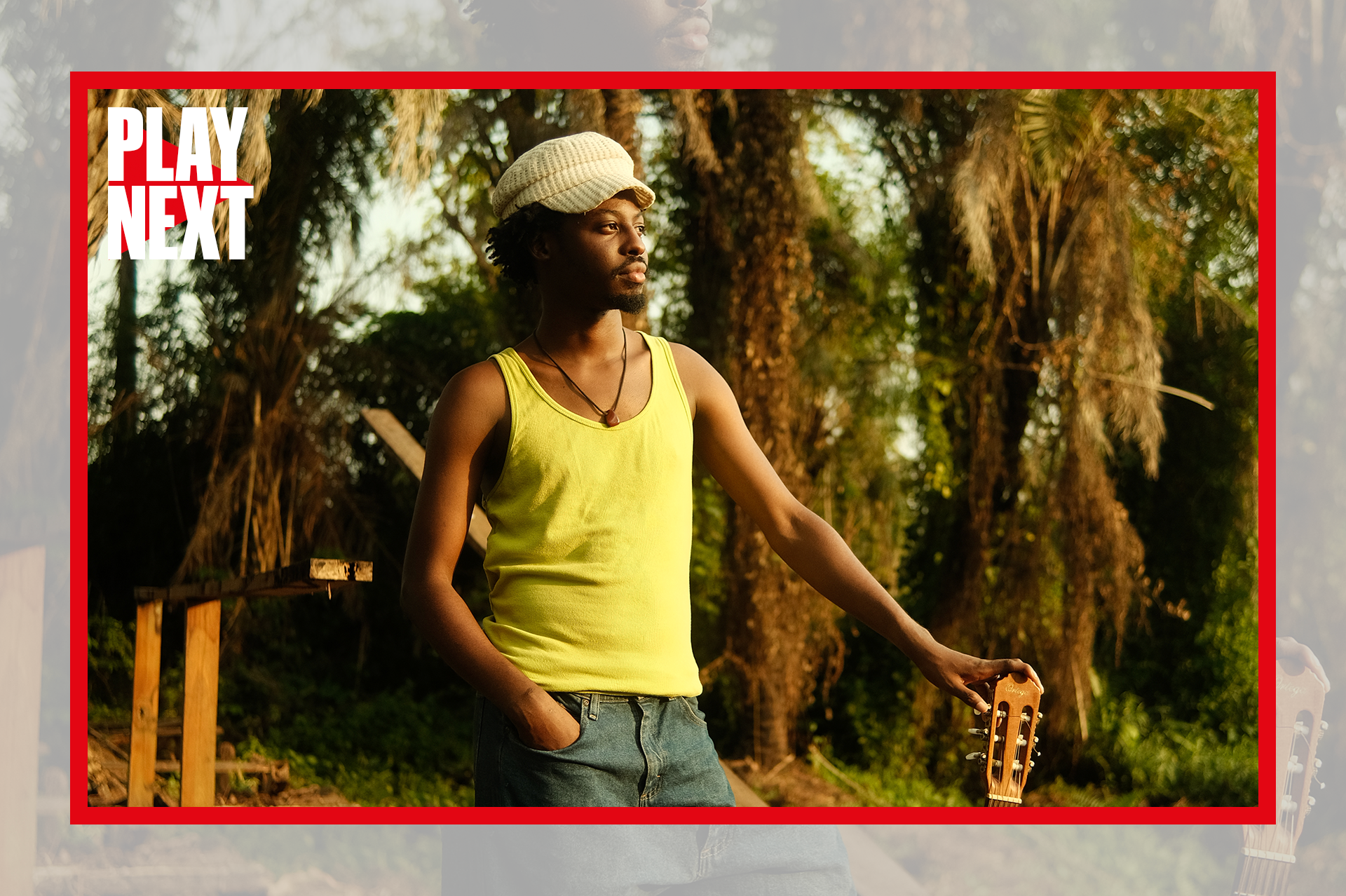Meet Tommy WÁ, the new Dirty Hit signing sharing his own version of Africa
The Nigeria-born, Ghana-based singer discusses going against the grain of 2020s African music, staying true to himself and new EP ‘Somewhere Only We Go’

Somewhere Only We Go, the title of Tommy WÁ’s new EP, is also the name of a festival set up by the singer and his community in Ghana.
The Nigerian-born, Accra-based singer was inspired to launch the event after hearing of Brighton’s The Great Escape and (incorrectly) imagining a blissful countryside retreat instead of a sweaty seaside pub. “It had the concept of escapism,” the singer explains. Serendipitously, it was at that very festival where he was then discovered and subsequently signed by Dirty Hit in 2024.
Despite this hope for escapism, WÁ’s music – shared first on the 2023 EP Roadman and Folks and now his Dirty Hit debut – doesn’t escape at all. Instead, it highlights the sounds, energies and stories of his community and culture.
Inspired by west African folk music from the mid-20th century, as well as the American folk of the 2010s, WÁ’s sound is a global one, but one that aims to shine a light on the community he comes from.
In our interview, he discusses the new EP, his journey to get there, and why modern west African music is far more than just Afrobeats.
Read our interview with Tommy WÁ and listen to his music on our Play Next playlist on Spotify below.
You’ve had some of the songs that make up the new EP for nearly a decade – can you explain that journey?
Everything happens in good timing, and God’s timing. It’s given me enough time to live out that life, enough to be confident in sharing it, enough to tell people that I’m not sharing a lie. I’m not sharing a life that I’ve not lived. I’m sharing a life that I know is true, and to what Africa is. It’s not something I chanced upon, and I’ve had the privilege of years and years to brew it, enough to share it with the world right now.
What has changed for you personally, as well as for your friends and family, since you started making this music, and has it impacted it?
I’m turning 30 this year, and we definitely had more time and less responsibilities. We were more adventurous, and could take more risks. For those who are coming of age like I am, there’s another project. The next project is for them. We’re all moving to different countries, and I’m playing more shows in the UK and not spending as much time with my friends and family anymore. From the time the music was being cultivated till now, things have changed. On the next project, we emphasise how those things have changed. For now, we’re still together.
What do you expect that next set of music to sound like?
It’s always been just writing about the people around me. I’ve been working towards a debut [album] but not thinking about it as a debut – just writing. I also write some introspective songs, but I feel like I’m yet to show my introspective thoughts narrowed down to just me, Tommy WÁ. I think that will come, but a child is not born as himself – he’s born into a family. I feel it’s a better way to always tell the story from the family place before you know yourself and speak your own truths. I’m just telling stories about my reality as it pertains to everybody now, and eventually I’ll talk about myself.
In telling those stories about those around you, is the hope to also share insights into African life and African music that might be simplified in Western eyes?
Everyone just thinks narrow thoughts about Africa and the reality that dwells here. We’ve been through a lot of things already as a people, and I feel like it’s going to be a disservice if the world doesn’t get to know that other realities exist. I never travelled to the UK or out of Africa till 2022, and when I would eventually go, people within Africa were like, oh, even within Africa, people will be like, ‘Have you been traveling out this year? Your accent is very [different]!’
It’s a matter of sharing a story and also motivating people to live freely and live as authentically as they can and not try to hide a part of themselves. Some of my friends, they listen to my music, and I didn’t know at first, but they listen to my music, or my kind of music, in their houses, on road trips, in gatherings, but they pretend that they’re listening to what’s popping… Burna Boy, WizKid – the pop music. They were not comfortable to say that this is the kind of music I listen to.
Was there a risk in making music that sounded so different from the zeitgeist in west Africa at that point?
I would say it was delusional, but I wasn’t thinking about it. It’s only delusional now, in retrospect. It’s like waking up and brush your teeth. You’re not going to think that you’re crazy for brushing your teeth with a toothbrush and not a chewing stick or something – it was part of my life and I didn’t really think about it. Now that I think about it, it was delusional to play festivals or shows in Ghana or Nigeria, where everyone was an Afrobeat artist and [playing] pop music, and then I just put on my guitar and just stood there and said, ‘Hey, my name is Tommy WÁ and you’re about to dance!’ I never thought about it. I was just like, ‘This should be normal. Everybody should enjoy themselves’. Then after me, it was hardcore hip-hop or a pop sound. But it was always good. I was a show-starter!
